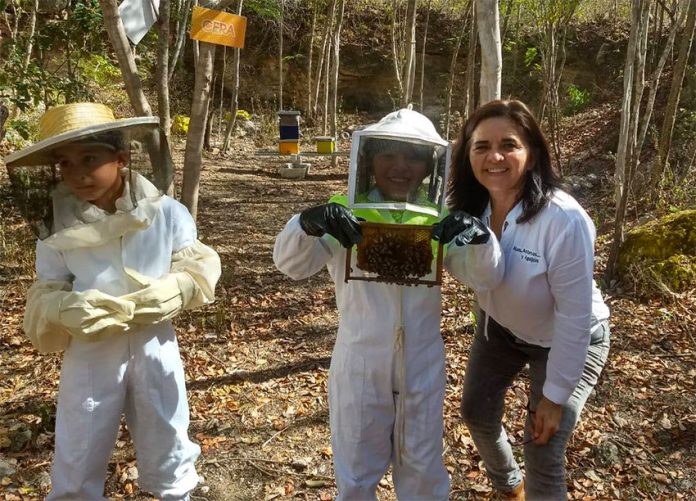The glory days appear to be over for Yucatán honey producers, who are facing the most difficult conditions they have seen in the last 50 years.
Between 2008 and 2012, honey production in the state reached record levels of 12,000-14,000 tonnes a year. This year, production is expected to be 4,000-7,000 tonnes at most, and the trend will most likely continue downward.
Yucatán beekeepers feel discouraged because they lack both funding and support.
“There’s worry, almost desperation,” said Nelly Ortiz Vázquez, president of the Yucatán School of Agronomic Engineers and director of the state’s Beekeepers’ Association.
“We haven’t only lost influence in international markets, but also at the national level. Yucatán fell from first to third and fourth places in honey production, surpassed by states like Jalisco and Veracruz.”

According to official numbers, around 11,000 honey producers depend on beekeeping to make a living in Yucatán.
“We have no idea what could happen in 2020. Plants aren’t flowering, there’s no nectar, no support. How will we care for and conserve our bees?” she added.
She said that in the last 10 years Yucatán has faced severe deforestation that has affected all types of plants across the whole state. Bee populations have also declined because of the varroa mite.
“In Mérida, for example, although they talk about planting trees and reforestation, the urban growth and the area covered by concrete gets bigger and bigger with more residential neighborhoods. In rural areas, fires, indiscriminate felling, neglect, etc., have caused many traditional plants to die,” she said.
Market factors have also played a role in the decline of Yucatán’s honey industry.
One of its main markets is Europe, where consumers bought large quantities of the sweetener from 2005 to 2010. However, over time orders declined after China began selling a cheaper honey made from sugar beets.
“The Chinese imitate everything, even the image of the Virgin of Guadalupe, and now with the beet-based honey that they are mass producing and selling cheap, they’re taking foreign markets, like those in Europe, for example,” said Ortiz. “It’s not only affecting Yucatán, but all of Mexico’s honey production.”
The cheap Chinese honey has caused the Yucatán product to fall from 50 pesos per kilo in its glory days to just 12 pesos per kilo today.
In response to the crisis, the state’s Secretariat of Rural Development announced the installation of 28 enlarged beehives with queen bees imported from Italy. The trial run aims to strengthen hives and achieve better honey production by improving the genetics of Yucatán bees.
Rural Development Secretary Jorge André Díaz Loeza stated that his department will invest 20 million pesos (US $992,000) in the project.
Ortiz hopes that the introduction of the new queen bee species will make Yucatán bees more resistant to climate change and pests like the varroa mite. She said it’s a question of culture and persistence, and that beekeepers are looking for new ways to keep their hives alive.
Source: El Universal (sp)
